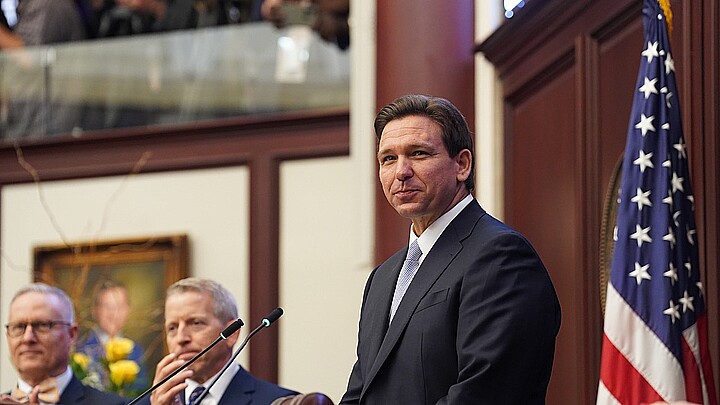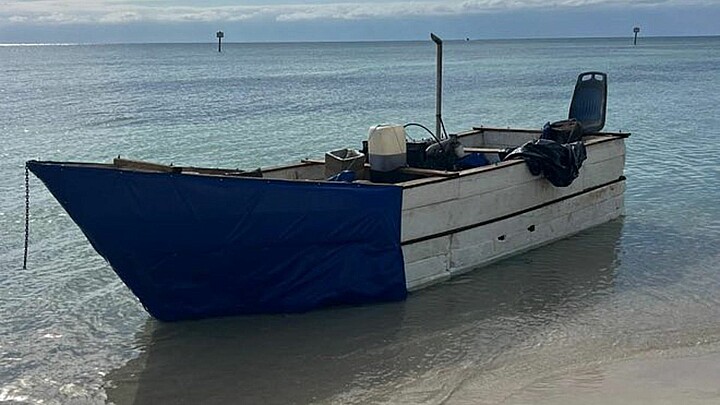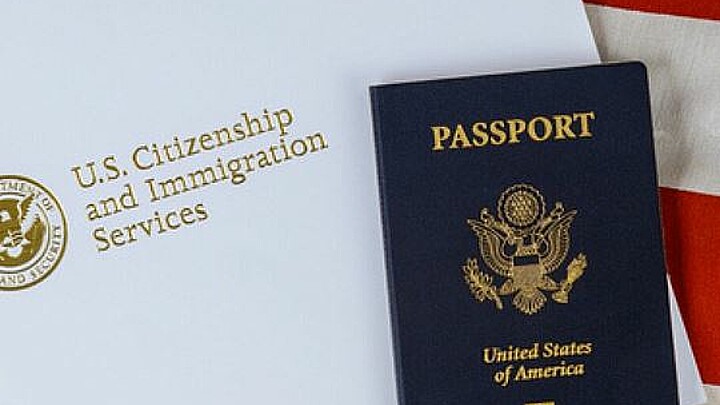Immigration
Rep. Diaz Balart slams Biden threat to veto border security bill amid Title 42 expiration
The Secure the Border Act of 2023 was introduced by Republican Representatives Mario Diaz-Balart and Tom McClintock. It includes the construction of a border wall along the U.S.-Mexico border.
May 9, 2023 1:18pm
Updated: May 9, 2023 6:41pm
President Biden has signaled he will veto a House Republican-sponsored measure aimed at securing U.S borders by addressing immigration at the U.S.-Mexico border, a move that was immediately slammed by Republican legislators.
The Secure the Border Act of 2023, introduced by Republican Representatives Mario Diaz-Balart and Tom McClintock, includes the construction of a border wall along the U.S.-Mexico border and provisions related to border security technology acquisition programs.
It has garnered support from House Speaker Kevin McCarthy but has been met with immediate criticism from congressional Democrats who say it would punish all noncitizens, including legal residents, trafficking victims, and refugees.
The veto threat comes just days before the end of the pandemic-era Title 42, which expels migrants immediately without an asylum hearing and is expected to prompt a surge of migrants. The policy will expire at the end of Thursday, and the U.S. will revert to using national immigration laws and other tools that target asylum-seekers.
While Republicans say the bill would address a crisis at the border, the Biden administration opposes it, stating that it does nothing to address the root causes of migration, reduces humanitarian protections, and restricts lawful pathways.
Republican Rep. Diaz-Balart of Florida disagrees, saying the crisis at the southern border is among the gravest threats to U.S. national security in history, and that the Biden administration's lack of action has ceded all control to narco-terrorist cartels.
"On the other hand, the unmanageable chaos at our border has overwhelmed our federal agencies and prevented those with legitimate asylum cases, fleeing murderous dictatorships, from having their case heard and considered.
"In addition to the Biden administration's failed border policy, its foreign policy and record of strengthening regimes like Maduro and Castro continue to destabilize these countries, pushing even more individuals into the United States. This vicious cycle must end," Diaz-Balart said.
The Secure Border Act will also require certification of real-time access to criminal history databases for aliens, collection of biometric information from individuals seeking entry into a sterile area, reports on termination or resignation of Department of Homeland Security employees due to COVID vaccine mandate, and a study to examine costs incurred by individual states in support of the Federal mission to secure the southwest border.
House Majority Leader Steve Scalise, R-La., has called the bill "the strongest border security package that Congress has ever taken up," and the House will vote on it this month.
The White House says the bill would cut off nearly all access to humanitarian protections, and "would make processing less efficient by prohibiting the use of the CBP One mobile application to process noncitizens and restricting DHS’s parole authority, such that successful programs, like “Uniting for Ukraine,” would be prohibited."
The bill would also reduce authorized funding for essential programs including the Shelter and Services Program that provides a critical source of funds for state and local governments and reduces pressure at the borderand. In recent days the U.S. Conference of Catholic Bishops’ Committee on Migration has also criticized it, urging lawmakers to oppose it and work towards a more comprehensive and humane immigration system.
"President Biden promised a more "humane and fair" immigration policy, but there is nothing humane about the nearly 900 individuals who died last year making their way into the United States.
"There is nothing humane about the 300 Americans who die daily from fentanyl poisoning that is brought in through our southern border. There is nothing humane about the women and children abused, raped, and killed by cartels. There is nothing humane about unaccompanied minors being exploited and ending up in some of the most punishing jobs in the country", said Diaz-Balart.











